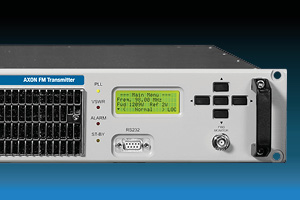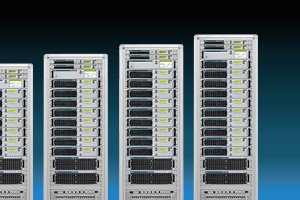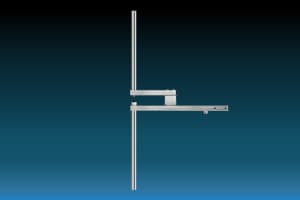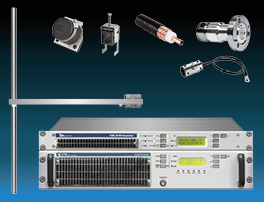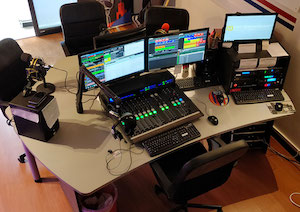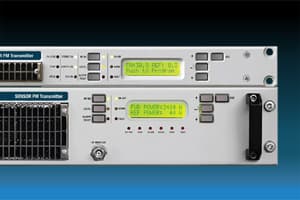Orban OPTIMOD 5518
FM Audio Processor and Stereo Encoder

FM Audio Processor & Stereo Encoder
FM ONLY LIMITER + RDS/RBDS
Superb stand-alone stereo encoder with NO overshoots and RDS. OPTIMOD 5518 is a superb stand-alone stereo encoder combining look-ahead and band-limited clipping techniques with latency as low as 2 ms and full overshoot limiting and extremely tight peak control in both the left/right and composite baseband domains, to control STL-induced overshoots while minimizing artifacts. The 5518 is the ideal choice for network broadcasters who process with an FM audio processor (Like Orban Optimod FM 8600) at the network origination point and who need a processor at every transmitter to eliminate network STL overshoots.

Overview
RDS
The 5518 includes a full-featured RBS/RBDS generator at no additional charge. The generator supports dynamic PS. It can be controlled via the 5518 presets and an ASCII terminal server that can be connected to automation to support, for example, displaying title and artist.
ITU BS 412 multiplex power limiter
The built-in, defeatable ITU BS412 multiplex power controller acts on all outputs to meet even the most stringent European government regulations include a full spectral protection of subcarriers and RDS/RBDS regardless of the amount of composite limiting.
10 Mhz Reference input
A 10 MHz frequency reference input allows the stereo pilot tone frequency to be locked to GPS or another high-accuracy frequency standard. This improves the performance of single-frequency networks in areas where coverage of the transmitters overlaps.
SSB
The stereo encoder’s stereo sub-channel modulator can operate in normal double sideband mode and in an experimental compatible single sideband mode (SSB/VSB) that is offered to enable users to compare and assess the two modes.
Silence Sense
Analog Fallback to Digital control that allows Silence Sense to switch the active input from Analog to Digital if silence is detected in the analog input signal but not on the digital input signal. This function works vice versa as well on both analog and digital AES input.
Diversity Delay
The 5518 can delay its output by as much as 16 seconds. This delay can be used as the diversity delay in Digital Radio installations.
Remote Control
At the transmitter side you'll be pleased by its three separate remote control ports - GPI contact closures, RS232 serial and built-in Ethernet for TCP/IP networks. The serial and Ethernet ports are supported by the supplied 5518 PC Remote Control application. This Windows® 2000/XP/Vista/7/8/10 allows you to access all 5518 features and allows you to archive and restore presets, automation lists, and system setups (containing I/O levels, digital word lengths, GPI functional assignments, etc.)
Administrating and Monitoring
The SNMP (Simple Network Management Protocol) features allow you to monitor your Optimod’s status and to send Alarm notifications via your Optimod’s Ethernet connection to your network. API features allow custom third-party applications (including automation systems) to recall presets, view status and set the controls.
The 5518's feature set fully exploits the processor's DSP and computer-based control architecture. To ensure absolute accuracy, you can automatically synchronize the clock to an Internet timeserver. It has a cool-running, energy-efficient switching power supply and uses the latest dual-core DSP chip technology from Freescale Semiconductor.
Key Features
User-Friendly Interface
LCD and full-time LED meters
An LCD and full-time LED meters make setup, adjustment and programming of OPTIMOD-FM easy - you can always see the metering while you are adjusting the processor. Navigation is by dedicated buttons, soft buttons (whose functions are context-sensitive), and a large rotary knob. The LEDs show all metering functions of the processing structure (Two-Band or Five-Band) in use.
Universal transmitter protection & audio processing for FM broadcast
The 5518 provides universal transmitter protection and audio processing for FM broadcast. It can be configured to interface ideally with any commonly found transmission system in the world.
Pre-emphasis limiting for the two standard pre-emphasis curves of 50 µs & 75 µs
The 5518 provides pre-emphasis limiting for the two standard pre-emphasis curves of 50 µs and 75 µs. Its pre-emphasis control is seldom audibly apparent, producing a clean, open sound with subjective brightness matching the original program.
Tight peak control at all its outputs
The 5518 achieves extremely tight peak control at all its outputs - analog left/right, AES3 left/right, and composite baseband.
Stereo encoder has two outputs with independent level controls.
The stereo encoder has two outputs with independent level controls, each capable of driving 75 Ω in parallel with 47,000 pF (100 ft / 30 m of coaxial cable).
Bandwidth-limiting & overshoot compensation
The 5518 prevents aliasing distortion in subsequent stereo encoders or transmission links by providing bandwidth-limiting and overshoot-compensated 15 kHz low-pass filters ahead of the 5518's audio outputs and stereo encoder.
Anti-aliased clippers
Anti-aliased clippers running at 256 kHz samplerate prevent any trace of "digital clipper" sound.
Flexible Configuration
Analog & AES3 digital inputs & outputs
The 5518 includes analog and AES3 digital inputs and outputs. Both digital input and digital output are equipped with sample-rate converters and can operate at 32 kHz, 44.1 kHz, 48, 88.2 and 96 kHz sample rates. The pre-emphasis status and output levels are separately adjustable for the analog and digital outputs. The input failsafe feature allows the 5518 to automatically switch from its digital input to its analog input (or vice-versa) if the primary input suffers a loss-of-audio failure.
Transformerless, balanced 10 kΩ instrumentation-amplifier circuits
The analog inputs are transformerless, balanced 10 kΩ instrumentation-amplifier circuits, and the analog outputs are transformerless balanced, and floating (with 50 Ω impedance) to ensure highest transparency and accurate pulse response.
Two independent composite baseband outputs with digitally programmable output levels
The 5518 has two independent composite baseband outputs with digitally programmable output levels. Robust line drivers enable them to drive 100 feet of RG-59 coaxial cable without audible performance degradation.
Two subcarrier inputs
The 5518 has two subcarrier inputs that are mixed with the output of OPTIMOD-FM's stereo encoder before application to the composite output connectors. One input can be re-jumpered to provide a 19 kHz pilot reference output. Each input has an internal level trim to accommodate subcarrier generators with output levels as low as 220 mV.
Precise control of audio bandwidth to 15 kHz
The 5518 precisely controls the audio bandwidth to 15 kHz. This prevents overshoots in uncompressed digital links operating at a 32 kHz samplerate and prevents interference to the pilot tone and RDS (or RBDS) subcarrier.
Defeatable, extremely accurate multiplex power limiter
The 5518 has a defeatable multiplex power limiter that controls the multiplex power to ITU-R BS412 standards. The multiplex power limiter acts on all outputs (not just the composite output). It reduces clipper drive when it reduces power, simultaneously reducing clipping distortion. To prevent audible gain pumping, a user-adjustable gain offset control allows the user to minimize the amount of gain control that the controller performs.
10 MHz clock / wordclock reference input
The 5518 has a 10 MHz clock / wordclock reference input, which can be used to lock the stereo pilot tone to a high precision external reference like a GPS-based frequency standard. This facilitates using the 5518 in single-frequency network applications.
Samplerate and multiples thereof
The samplerate is 64 kHz and multiples thereof, up to 512 kHz. The internal audio bandwidth is high enough to prevent overshoot caused by spectral truncation of the left/right input signals that are band-limited to 18 kHz or lower.
Low-pass filtering
15, 16 or 17 kHz linear-phase low-pass filtering can be applied to the input signal. To minimize input/output delay, this filter can be bypassed, which is appropriate if the input signal is correctly band-limited by the audio processor driving the 5518.
Left/right domain overshoot limiter
A left/right domain overshoot limiter is available. This uses the same technology as Orban's 8218 stand-alone stereo encoder, combining look-ahead and band-limited clipping techniques to control STL-induced overshoots while minimizing artifacts.
Dual-mode composite limiter
A dual-mode composite limiter is available. It can operate in either "Half-Cosine Interpolation" mode or conventional hard clipper mode. The "Half-Cosine" mode provides better separation and preservation of stereo imaging, while the "Hard" mode provides brighter sound because it creates waveforms that are closer to square waves. Both modes provide excellent spectral protection of the pilot tone and subcarrier regions. To ensure accurate peak control, the limiter operates at 512 kHz samplerate.
J.17 de-emphasis
The 5518 can apply J.17 de-emphasis to the input signal.
ITU412 multiplex power controller
A high-accuracy ITU412 multiplex power controller is available, with user control over the multiplex power threshold. This allows you to compensate for overshoots in the signal path upstream from the 5518, preventing excessive reduction of the multiplex power.
SSB Stereo Encoder Operation
The 5518 allows its stereo encoder’s stereo subchannel modulator to operate in an experimental compatible single sideband/vestigial sideband mode.
Flat or pre-emphasized input signal
The input signal can be flat or pre-emphasized to 50 µs or 75 µs.
Silence alarm and digital audio fault tally outputs
Silence alarm and digital audio fault tally outputs are available.
Inputs and outputs
All normal 5518 inputs and outputs are available, including analog and digital inputs, two composite outputs with independent level controls and two subcarrier inputs (one of which can be repurposed to emit a 19 kHz pilot reference output for RDS/RBDS generators.
RDS
The 5518 includes a full-featured RBS/RBDS generator at no additional charge. The generator supports dynamic PS. It can be controlled via 5518 presets and an ASCII terminal server that can be connected to automation to support displaying title and artist..
Flexible Configuration
Eight programmable, optically isolated "general-purpose-interface" (GPI) ports
The 5518 can be remote-controlled by 5 - 12V pulses applied to eight programmable, optically isolated "general-purpose interface" (GPI) ports.
5518 PC Remote software
5518 PC Remote software is a graphical application that runs under Windows 2000, XP, Vista, 7, 8, 8.1 and 10. It communicates with a given 5518 via TCP/IP over modem, direct serial and Ethernet connections. You can configure PC Remote to switch between many 5518s via a convenient organizer that supports giving any 5518 an alias and grouping multiple 5518s into folders. Clicking a 5518's icon causes PC Remote to connect to that 5518 through an Ethernet network, or initiates a Windows Dial-Up or Direct Cable Connection if appropriate.
The PC Remote software allows the user to access all 5518 features (including advanced controls not available from the 5518's front panel), and allows the user to archive and restore presets, automation lists, and system setups (containing I/O levels, digital word lengths, GPI functional assignments, etc.).
Versatile real-time clock
OPTIMOD 5518 contains a versatile real-time clock, which allows automation of various events (including recalling presets) at pre-programmed times. The clock can be synchronized automatically to an Internet timeserver.
Bypass Test Mode
A Bypass Test Mode can be invoked locally, by remote control (from either the 5518's GPI port or the 5518 PC Remote application) or by automation to permit broadcast system test and alignment or "proof of performance" tests.
Built-in line-up tone generator
The system contains a built-in line-up tone generator, facilitating quick and accurate level setting in any system.
Upgradeable Software
The OPTIMOD's software can be upgraded by running Orban-supplied downloadable upgrade software on a PC. The upgrade can occur remotely through the 5518's Ethernet port or serial port (connected to an external modem) or locally (by connecting a Windows® computer to the 5518's serial port through the supplied null modem cable).
Administrating and Monitoring
The SNMP (Simple Network Management Protocol) features allow you to monitor your Optimod’s status and to send Alarm notifications via your Optimod’s Ethernet connection to your network.
API: This interface can be used to allow custom third-party applications (including auto- mation systems) to recall presets, view status and set the controls.
Rigorously RFI-suppressed input, output & power connections
All input, output and power connections are rigorously RFI-suppressed to Orban's traditional exacting standards, ensuring trouble-free installation.
Certified
The 5518 is designed and certified to meet all applicable international safety and emissions standards.
Recommended products
no products avaible
 BACK TO ON-AIR STUDIO
BACK TO ON-AIR STUDIO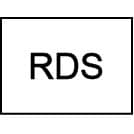 RDS ENCODER
RDS ENCODER STUDIO ACCESSORIES
STUDIO ACCESSORIES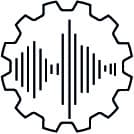 AUDIO INTERFACES
AUDIO INTERFACES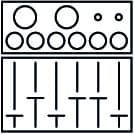 AUDIO MIXER
AUDIO MIXER